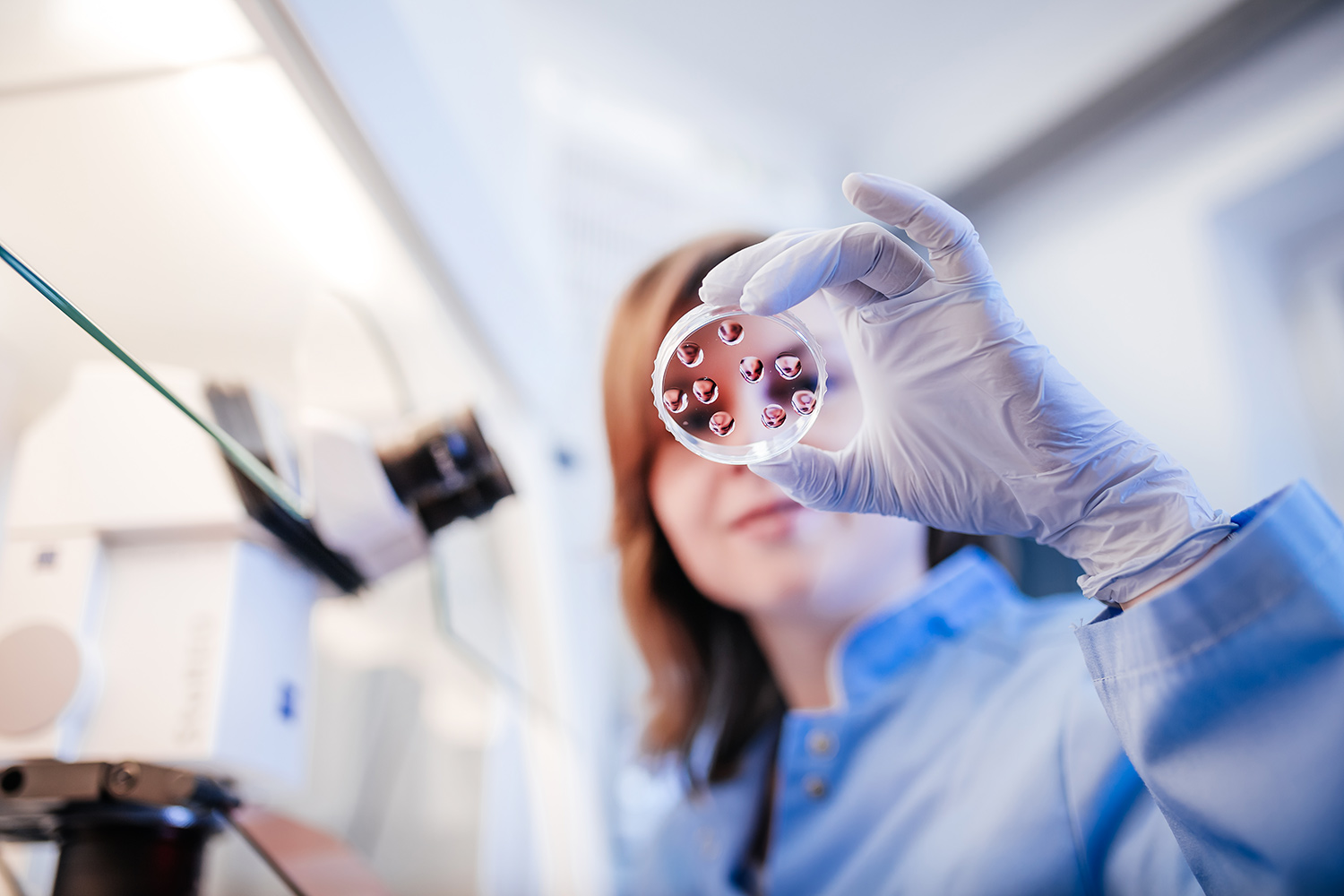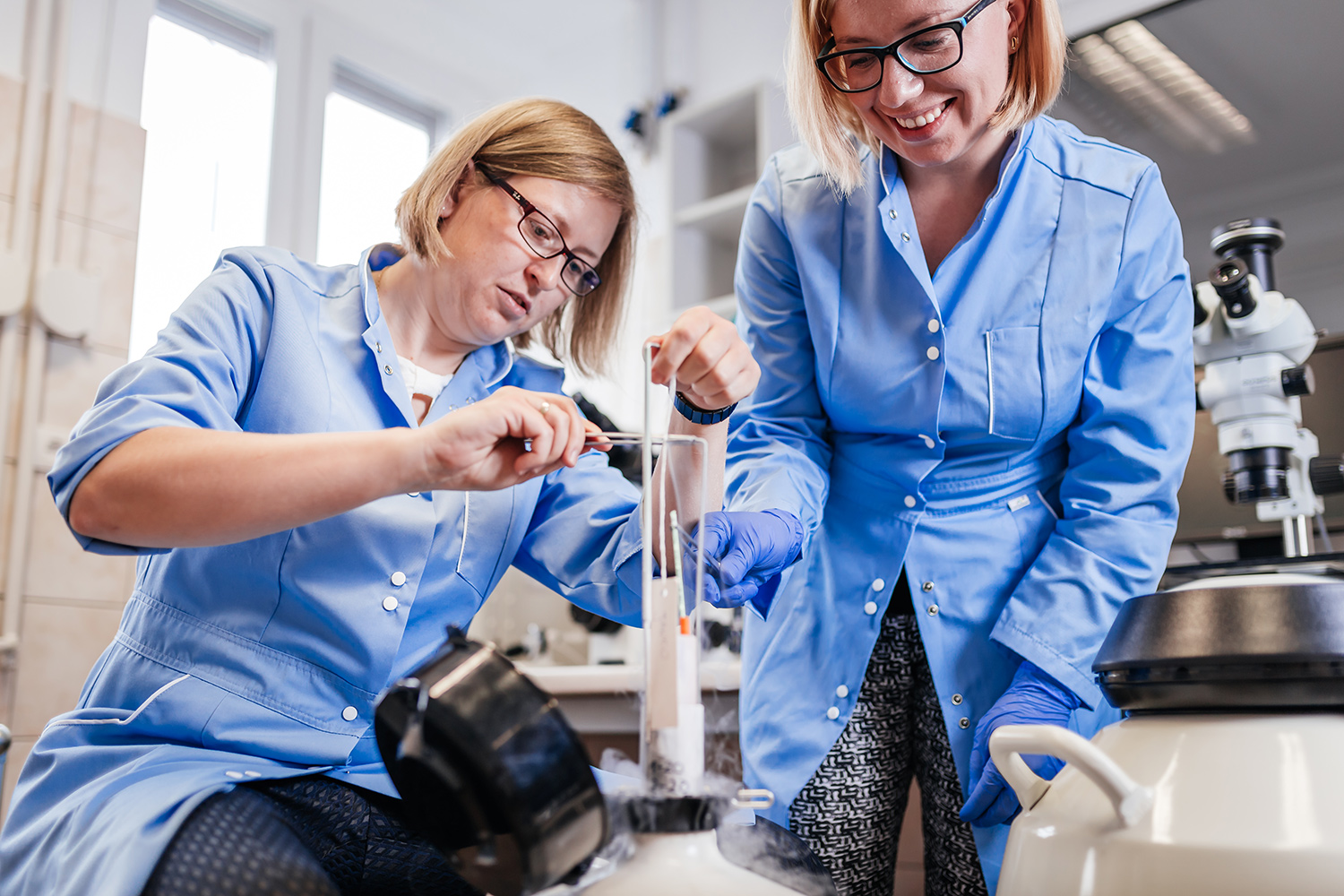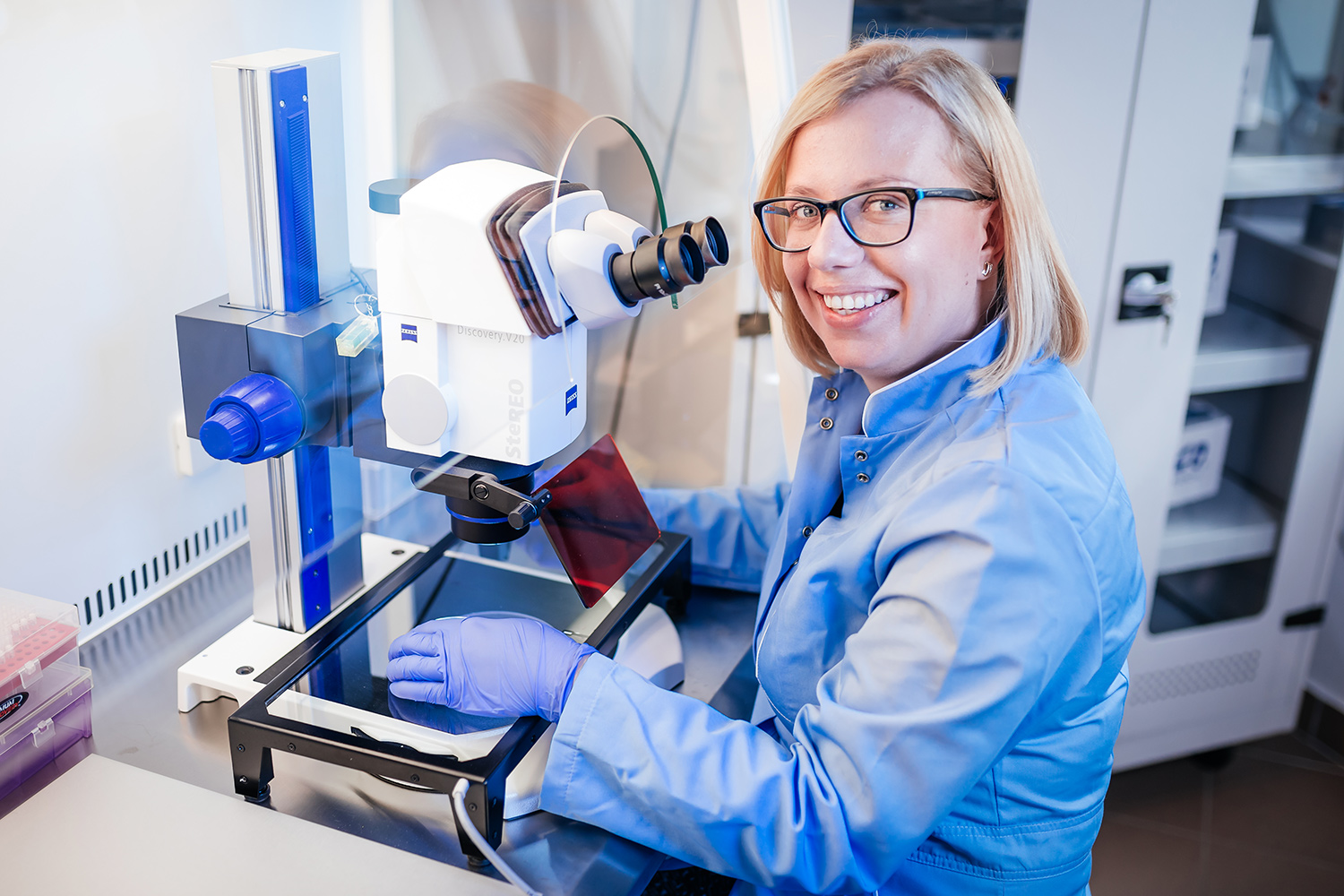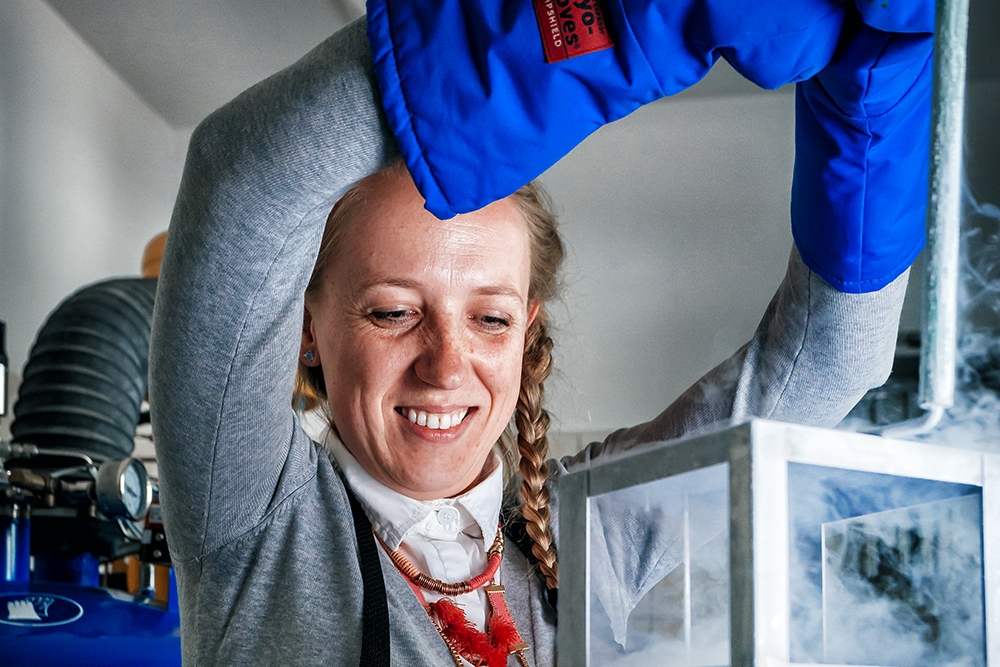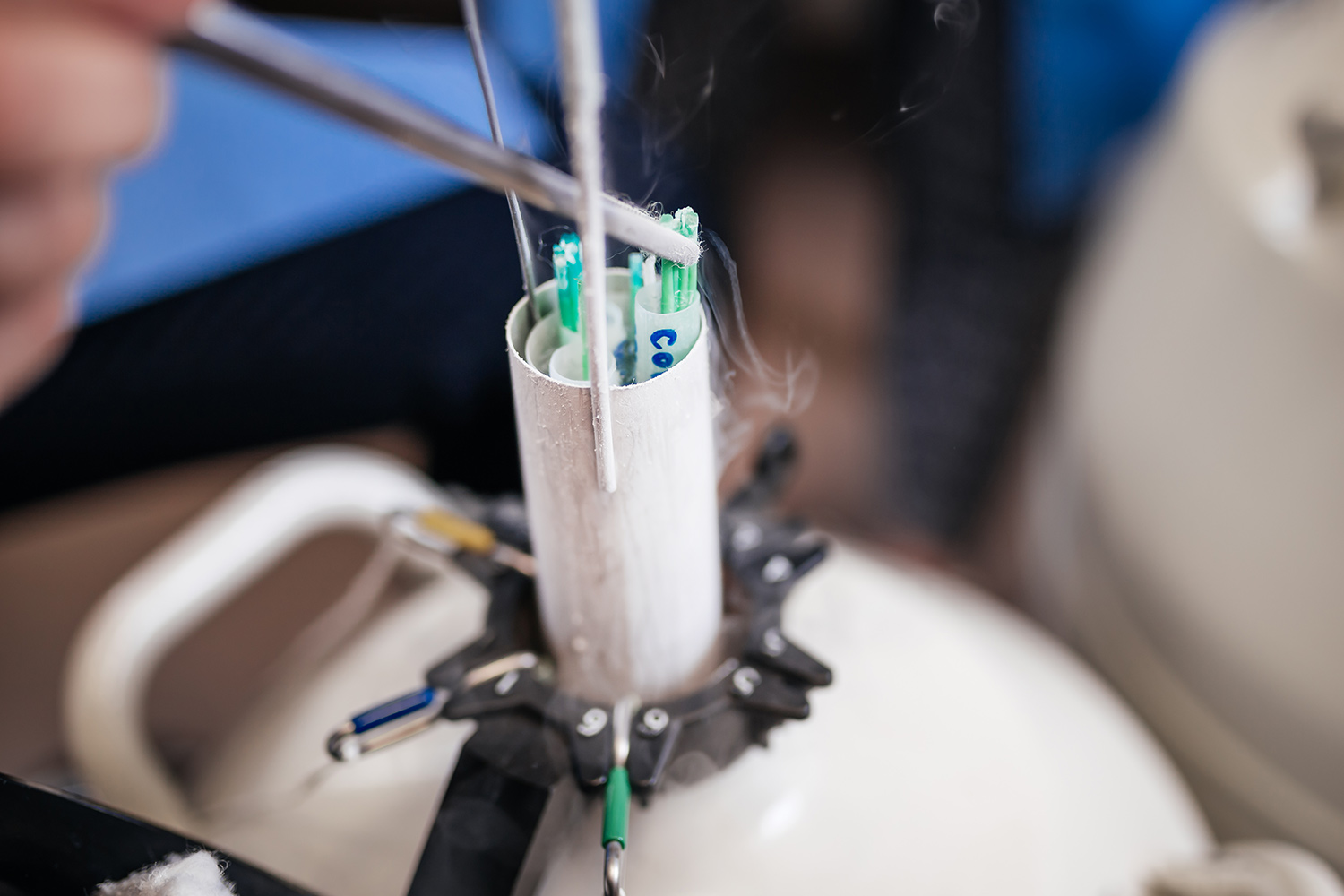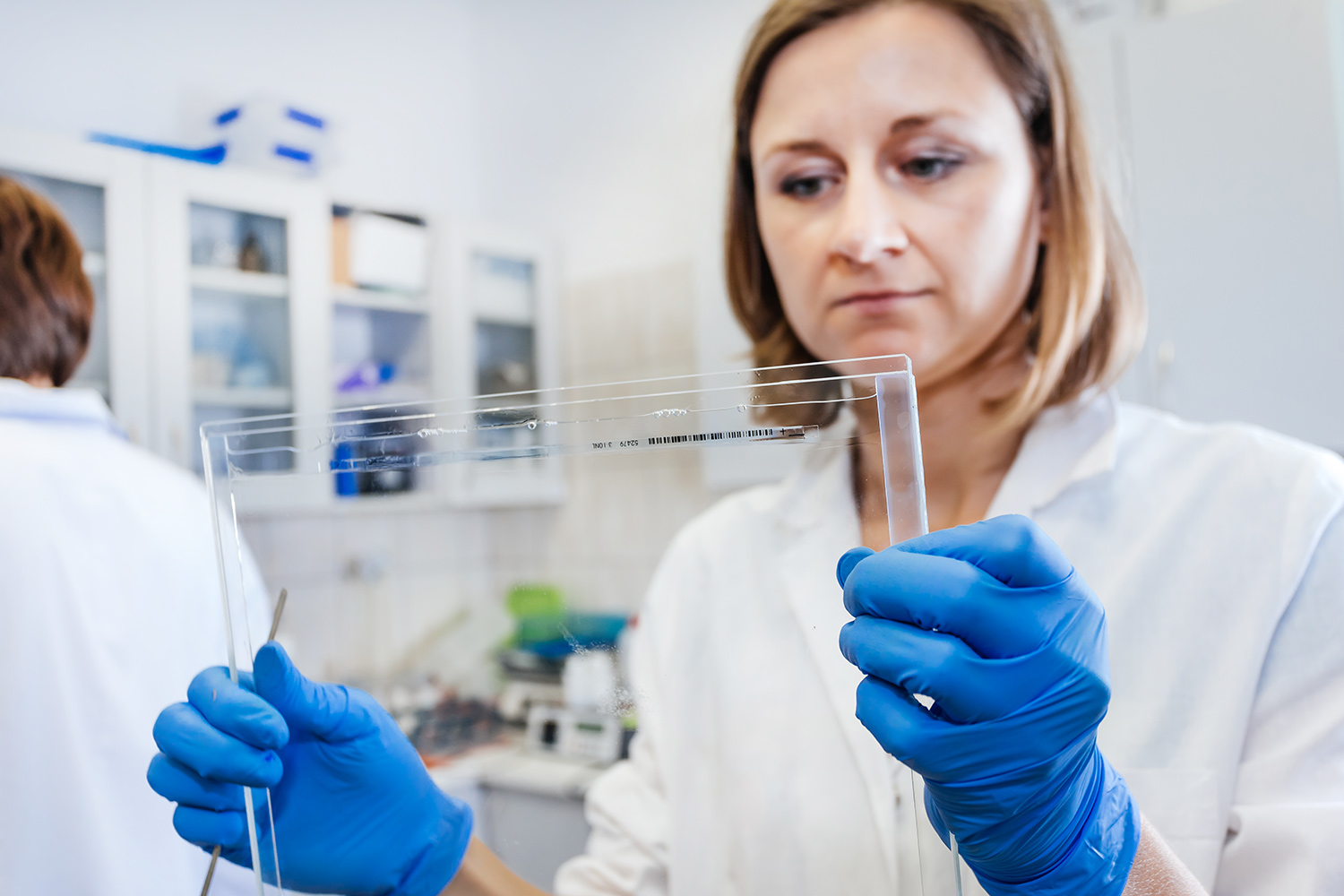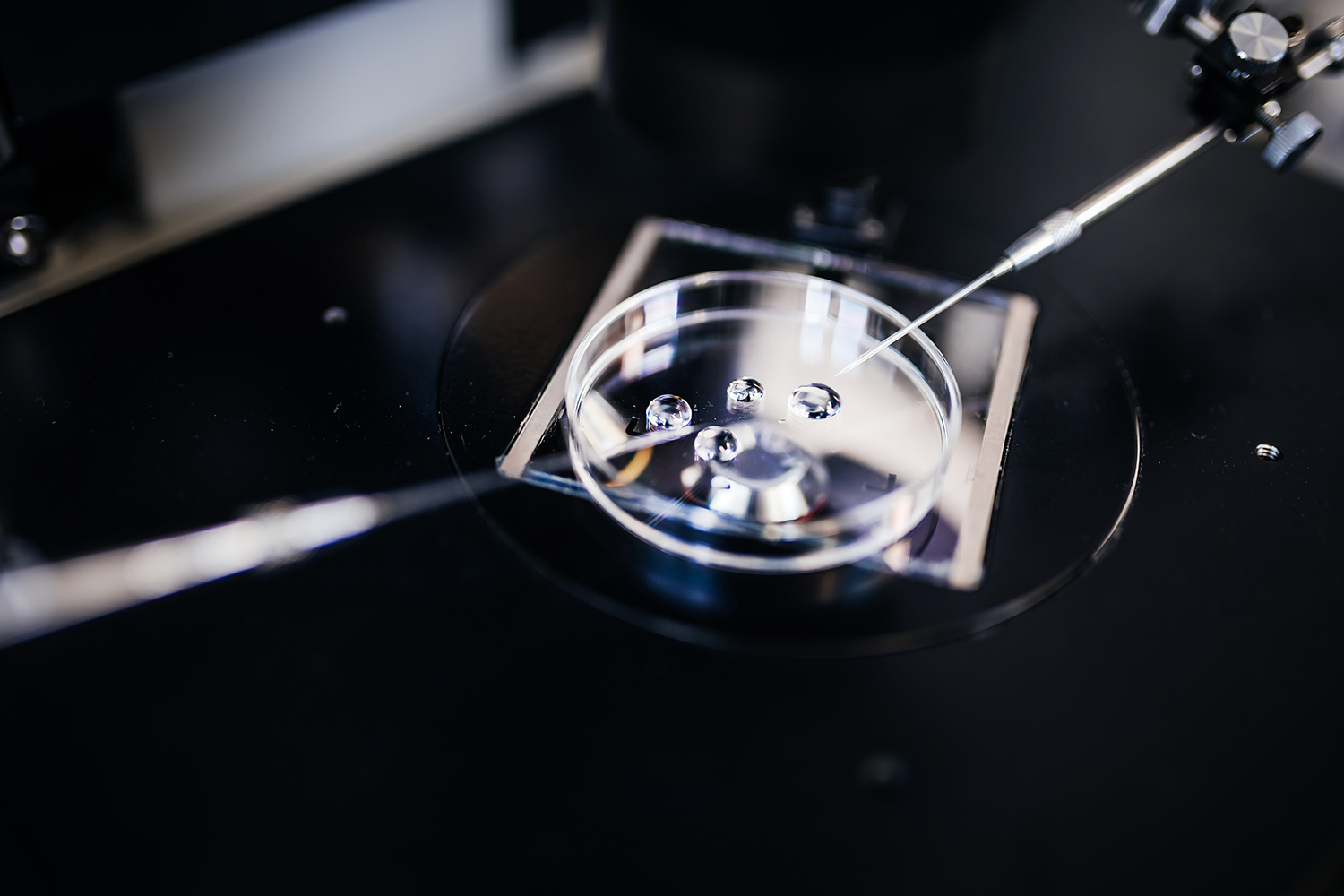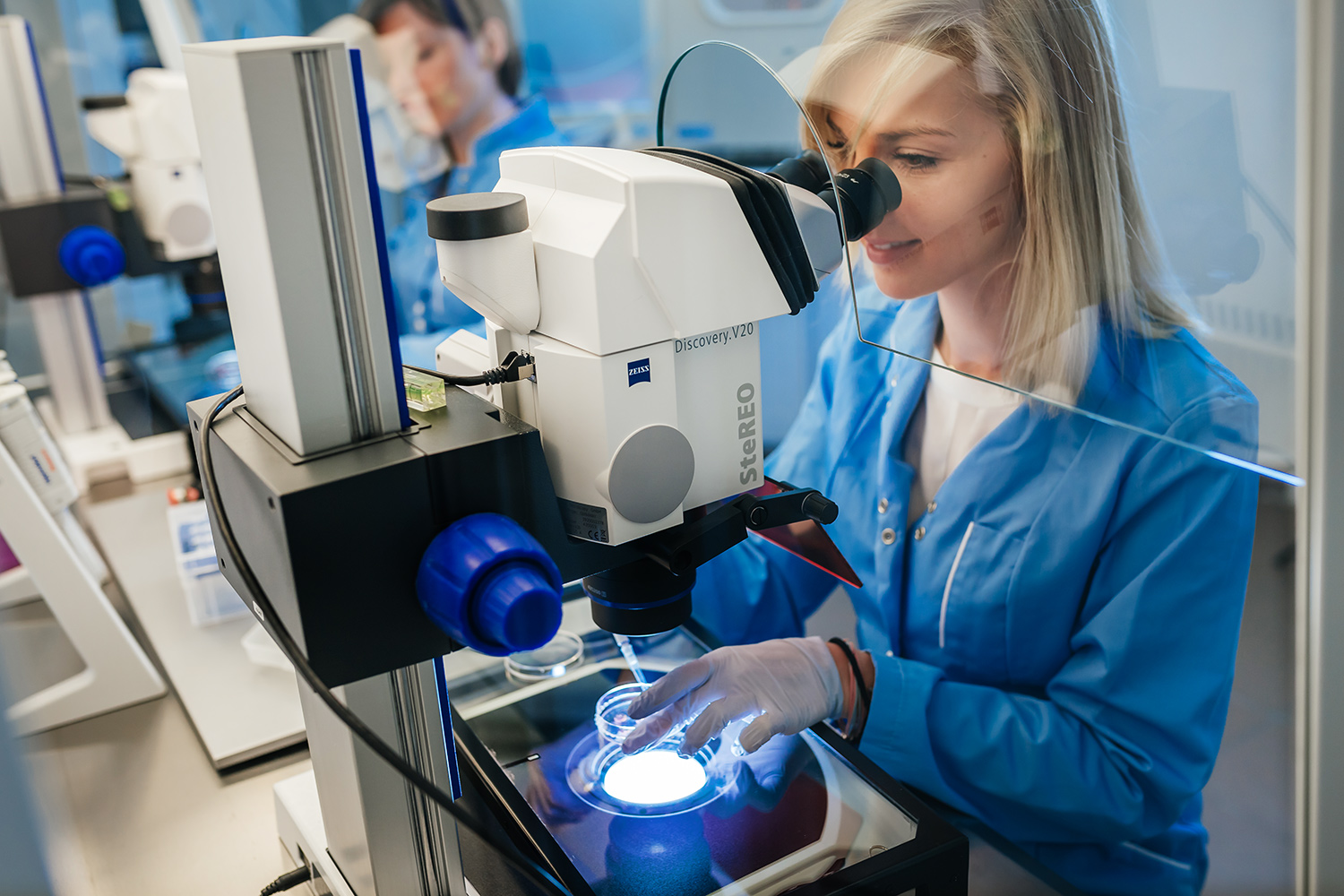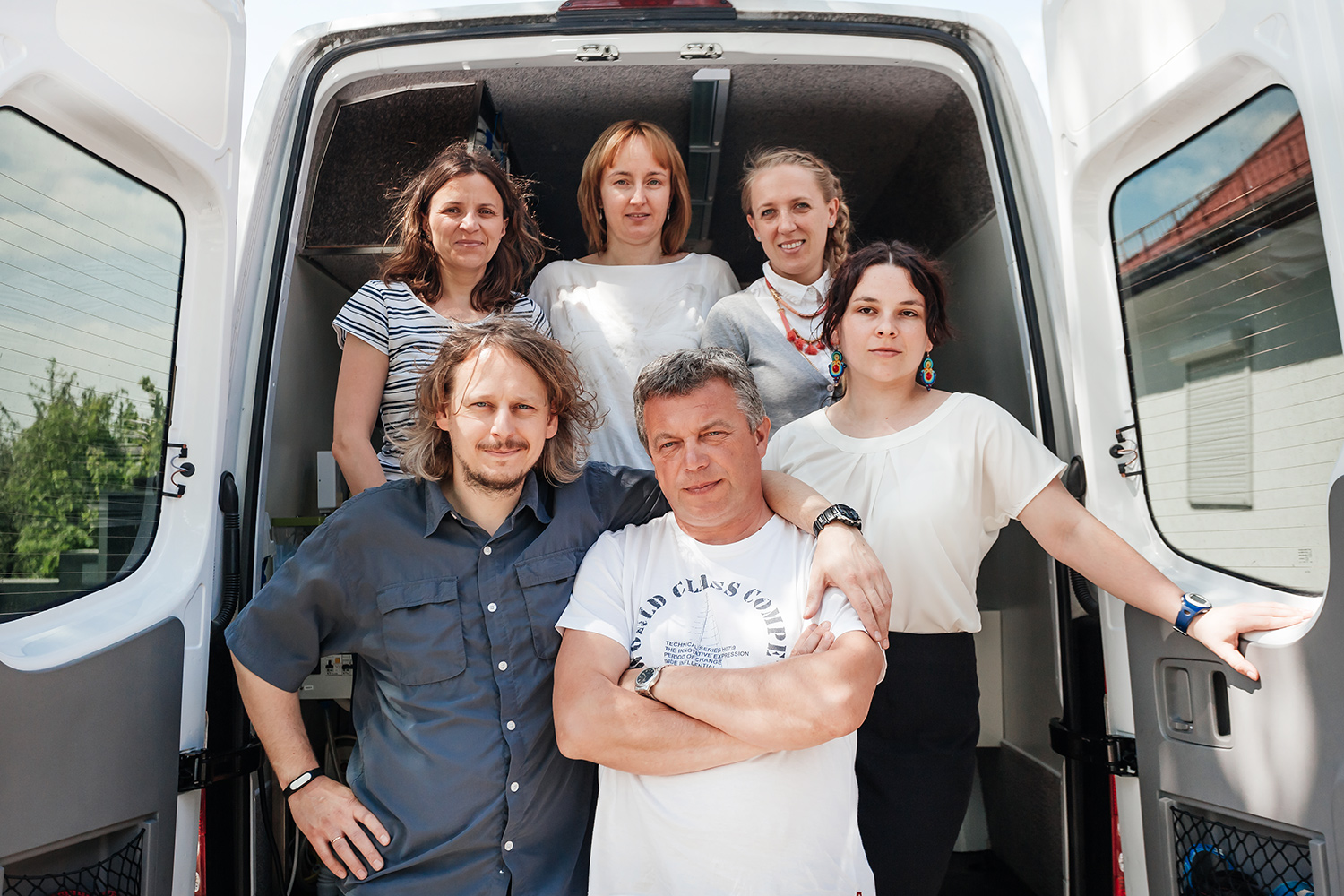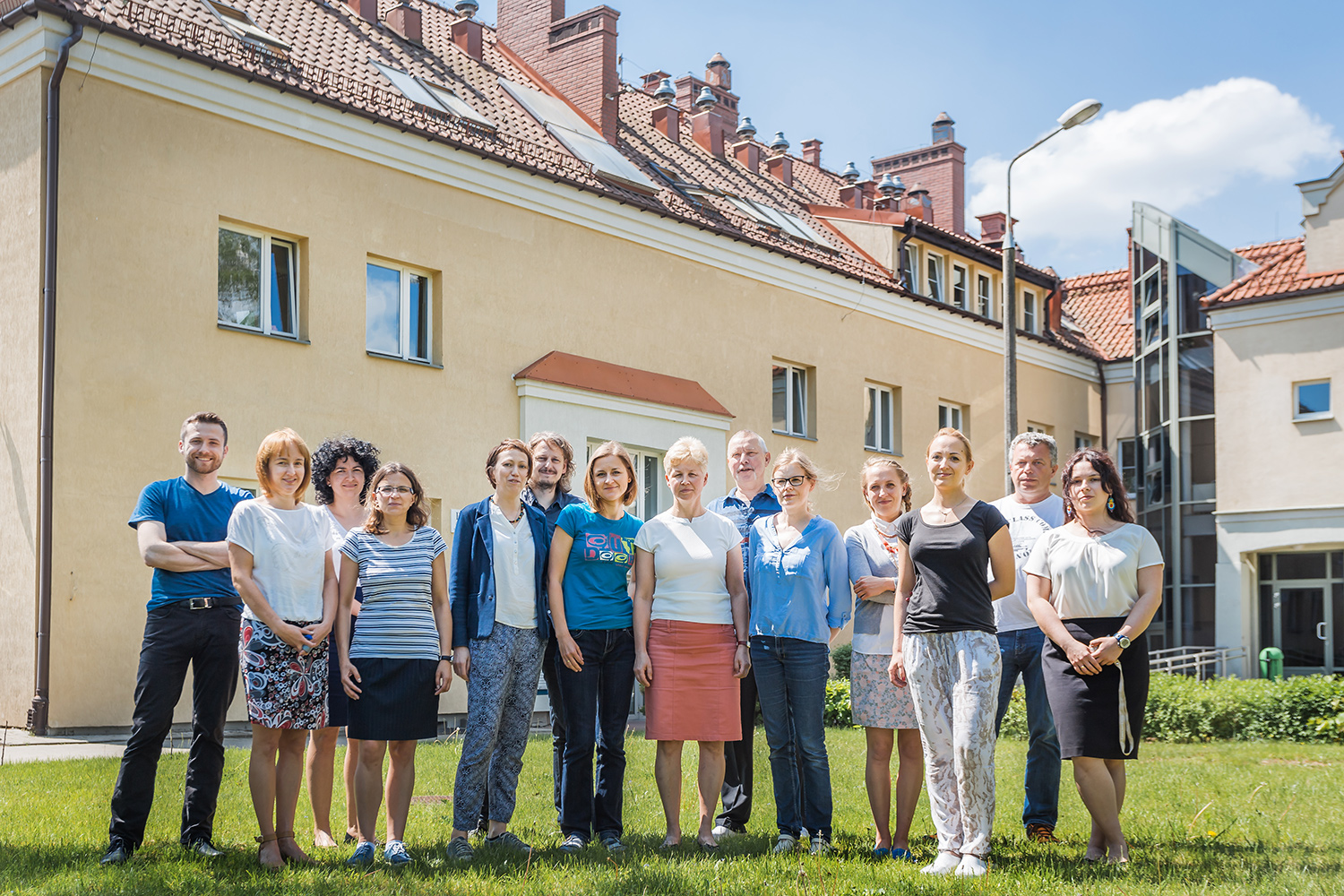Embryo Biology Team
The main scientific profile of the Team is to conduct multidimentional study on:
- studying endocrine mechanisms controlling embryo-maternal communication during early pregnancy establishment in animals and human on the molecular, and cellular level,
- explaining endocrine reasons for the disturbance of development of oocytes and embryos in domestic animals and utilizing animal models for studying human infertility,
- explaining endocrine reasons for the early embryo mortality in domestic animals (utilizing cow as a model),
- implementation of the already functioning in vitro embryo culture to the farm; oocyte recovery by the ovum pick up method and embryo transfer in vivo.
Embryo Biology Team
Molecular Andrology Team
Research activities of Molecular Andrology Team are concentrated on isolation, physicochemical and kinetic characterization of sperm and seminal plasma hydrolytic enzymes of fish and mammals. Investigations conducted at the Team concern genetic and environmental influence on the sperm quality parameters of teleost fish (rainbow trout, common carp, sander, Danube salmon) and sturgeons (Siberian sturgeon, starlet) as well as deer and European bison. An important direction of research is improving sperm cryopreservation methods of valuable and endangered animals. Researches in our Team lead to the improvement of effectiveness of rainbow trout and common carp sperm cryopreservation and practical application of this method in fish breeding. Cryopreservation methods of endangered animal species from the Red Book (European bison, Danube salmon) are under improvement.
